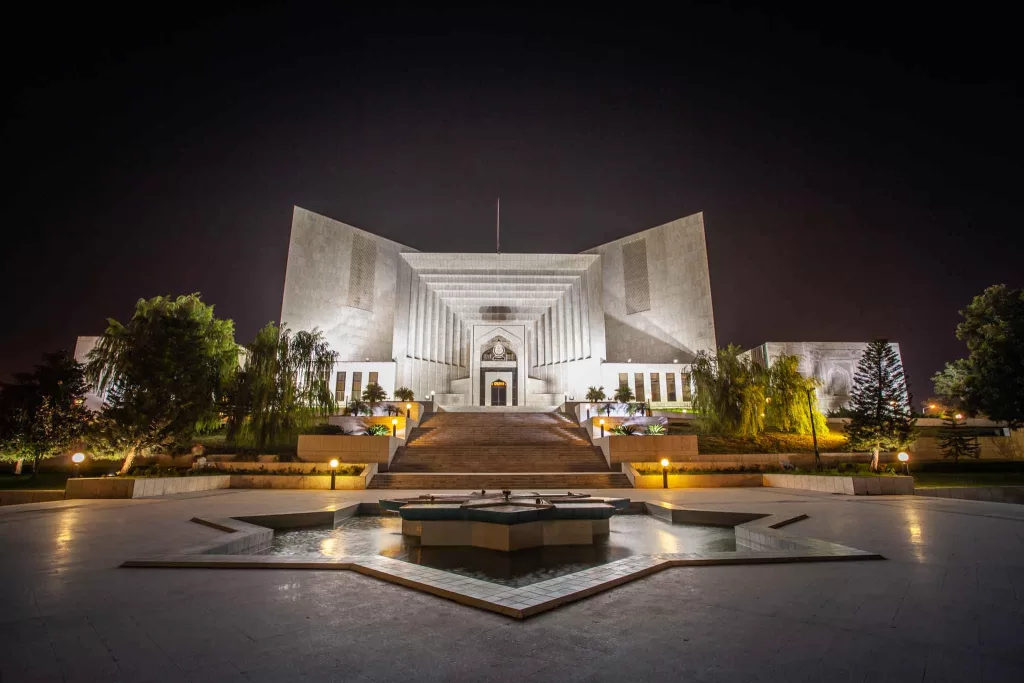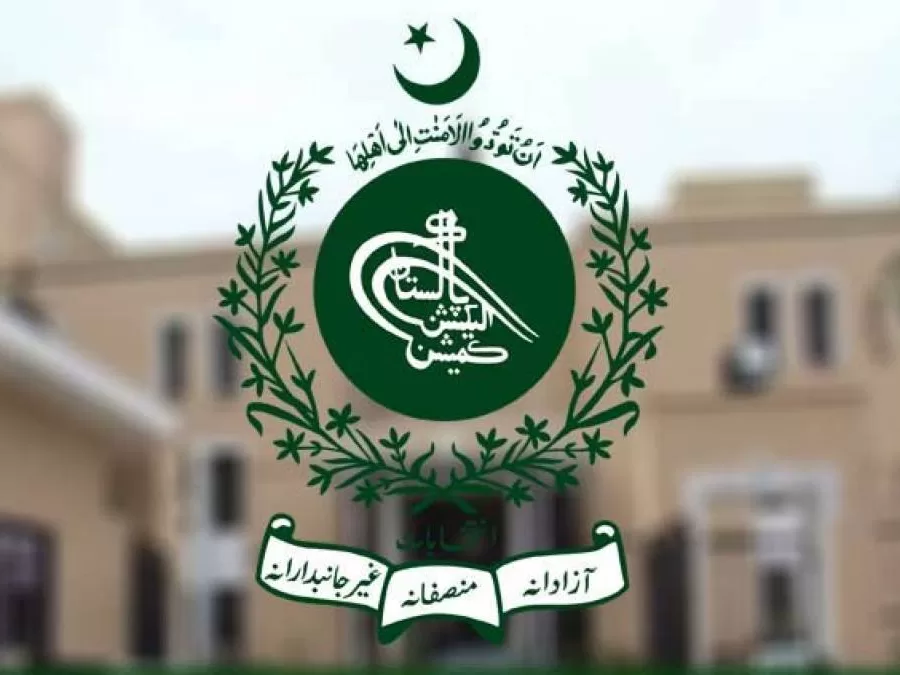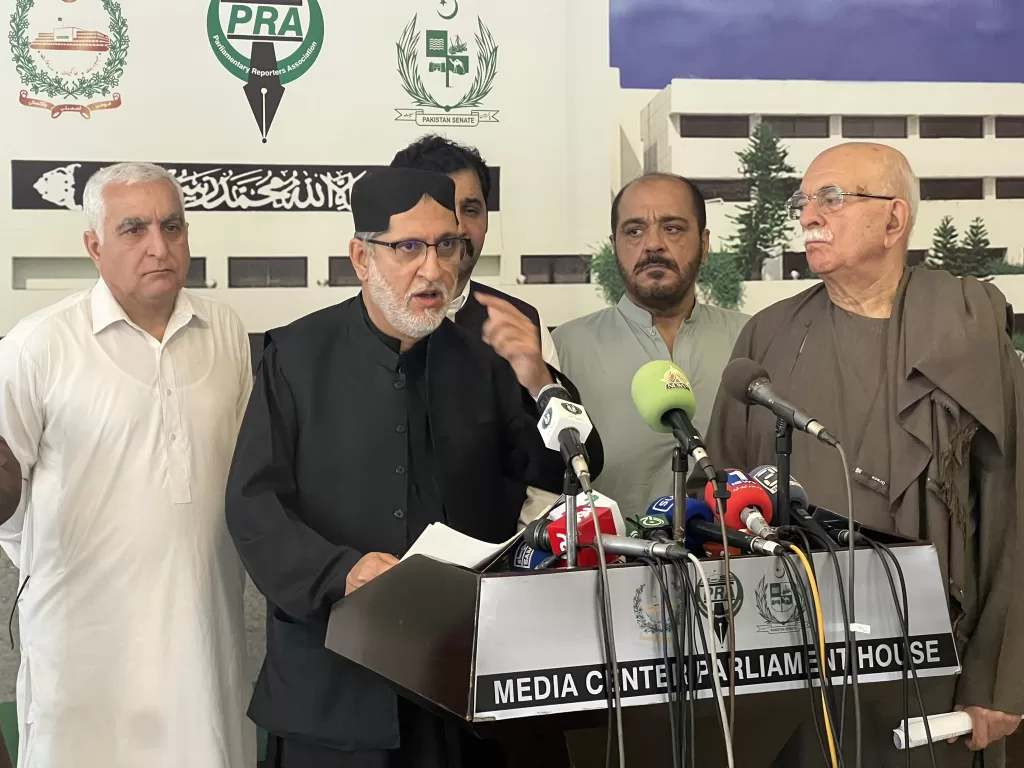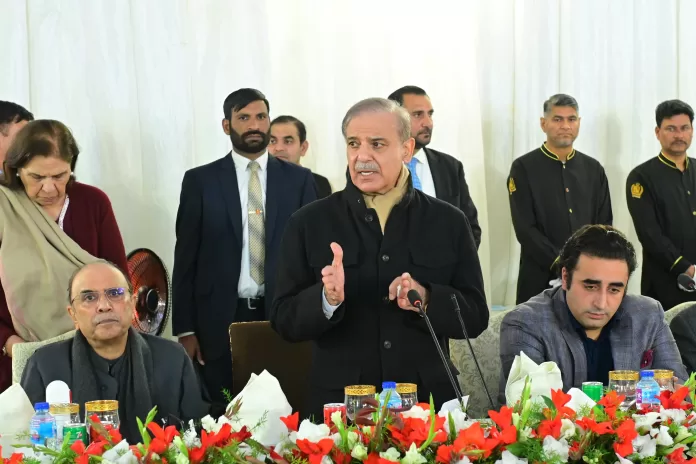On the 500th day of his incarceration, former Prime Minister Imran Khan was resilient as he vowed to ‘fight’ on for years to come. He is under detention on the premise of unending case-logs that are conventional pieces of political victimization in our pseudo democratic-hybrid governance. That also marks the synopsis of prevailing political discord and indicates a rough road ahead as the country is groped in abject instability with an imminent economic meltdown.
Politics in Pakistan is all about convenience and there are no rules of the game. So-called cherished democrats are at times found on the wrong side of the divide rubbing shoulders with autocrats, and a few from the military saddle are seen bestowed with the conscience for more openness and pluralism.
The passing of the 26th Constitutional amendment that has led to the clipping of powers of an independent judiciary, and mulling of free press by a ‘democratic’ coalition of Zardari-and-Sharif can well be compared with General President Pervez Musharraf’s obsession with local empowerment and opening of more than 50 electronic television channels.
That is how lopsided governance has fared in the Republic of 245 million desolate and hapless souls, where more than 50 percent live below the line of poverty. A country where elite capture is the order of the day, wherein roughly two percent people are sole beneficiary of statecraft called Pakistan, and for whom law and constitution are subservient to personal whims and wishes.
Yet, populism is the way to go in Pakistan wherein despite illiteracy, the people have exhibited the wisdom to cast ballot in favour of a disarrayed and apex court-sanctioned political party on February 8, 2024, by coherently voting for more than 243 electoral symbols. That will always remain a treatise of our political consciousness, and an abstract for research in our empowerment milieu.

Pakistan, notwithstanding crests and troughs and a clampdown on social media along with libel legislations, has a vibrant future when it comes to awareness and mobilizing of synergies for a national cause. The people are never lost in hope, and that is why parochialism has remained subdued. They still hold national unity and the Constitution in high esteem. This is where the threads are in need of being picked to knit a fabric of rapprochement to further serenity and development.
Political culture, nonetheless, has seen some severe battering since April 9, 2022, when Imran Khan’s government was shown the door. The civil-military and judicial bureaucracy have called the shots since then, and at the behest of opportunist political elements have rendered a blow to constitutionalism.
Thus, on the 50th year of the 1973 Constitution (2023), Pakistan’s parliamentary mosaic was camouflaged with undemocratic measures, constitutional dictates were thrown to the wind, the Supreme Court’s rulings were ignored and the mandated general elections were not held in the 90 days timeframe, as interim governments ruled the roost for reasons of political exigency.
The PTI, since its ouster, which took to the streets was in a macho mindset, and did all it can to ensure that a semblance of negotiated political order is not attained through talks with political characters, and things fall its way by virtue of power politics. That did not happen as it looked up to the powers-that-be in clouds, and the stalemate continues to this day. Political imprisonment of its workers, victimisation, repression, denial of mandate and a lack of space for flexing its political muscles is the new-normal for Imran Khan’s PTI.
His heroism is that he has stood fast, and refused to cut a deal in the footsteps of his predecessors, Benazir and Sharif, who decamped to safe havens in the shadows of slur and subjugation. Then they waited for a better time to stage a comeback and were given a clean chit by those who had damned them a while ago.
Imran Khan perhaps wants to put an end to that phenomenon, and is staying put at the Adiala Jail as he nurses his vision of a ‘Haqiqi Azadi’ (Real Freedom) – a doctrine contested to the core by his critics and zealously guarded by his followers. But realpolitik chips are down for him at home and even on the international front, where populism is being contested as a threat to the status quo.
It is argued, often rightly so, that things could have been much different had Imran Khan choreographed his charisma and sympathy sentiments, in the wake of his dethroning through an engineered vote of confidence, by returning to the very same Parliament as a proactive opposition leader. His die-hard critics too believe that Shehbaz Sharif’s beleaguered coalition standing on the vote-tip of a few parliamentarians would have come crashing down in weeks. Such a context is relevant because political parties are judged and appreciated for their skills on the floor of the house as politics is all about the art of possibility.
But the PTI itself followed a hybrid module of vying for the Parliament and, at the same time, settling scores on the streets. The popularity that the party had struck in the wake of ‘regime change’ sentimentality made it go over the horizons, and it is now in the woods.
Crossing of swords with the powers-that-be, and cursing the system from the pulpit had its toll for the PTI. It goes without saying that the PTI was victimized and discriminated against in every context by its political opponents, especially by the Election Commission and a prejudiced then Chief Justice of the Supreme Court, as they all worked on a plan for exterminating the party.

Yet, the PTI – like any other discriminated political entity of yesteryears — isn’t over and is striving for a comeback. The ensuing political abstract won’t be complete without pointing out some inbuilt weaknesses. The PTI – with the exceptions of a few dozen loyalists – had always been a pack of migratory birds, and they proved beyond doubt that they are quite capable of ditching its leadership. The trials and tribulations on the party proved that many of its stalwarts were compromised and opportunists, and were no less than a false-flag support for Imran Khan.
Neither was the PTI apt with its skills on the floor of the house as an assertive opposition in the absence of Imran Khan, nor did it play its rejuvenated role at the courts. Its talking to the media was poor and quite incapable in handling traumatic situations, as its second-tier leadership often went missing.
The street popularity is merely owing to Imran Khan’s charisma and appeal, and the post November 26, 2024, horrendous fallout suggests a new political unison: Khan-and-the-people. The PTI stands decimated as a party. Likewise, the larger opposition was unable to make any measurable impact by striking a formal political understanding in the Parliament and on the streets.
The so-called ‘Tehreek Tahaffuz Ayeen-e-Pakistan,’ (Movement for Restoration of Constitution), a conglomeration of opposition parties under veteran politician Mehmood Khan Achakzai, is a non-starter to this day.
Similarly, despite putting in their best of courage and loyalty, the cardinal allies of Imran Khan, the Sunni Ittehad Council chief Sahibzada Hamid Raza and the Shia Majlis Wehdat-i-Muslimeen (MWM) Allama Syed Nasir Abbas are in limbo. So is the case with the lawyers’ and the civil society who were unable to stand fast for the virtues of rule of law and supremacy of the Constitution.
More than two years of uninterrupted litigations against political opponents, a nosedived economy and instability have pushed the country to the brink. The Coalition of the Unwilling of Prime Minister Shehbaz Sharif is now also feeling the pinch, as it is exposed to an adverse public opinion and revulsion soaring even amidst its own ruling rank and file.
The economic euphoria that is being floated by the wafer-thin majority government, as it sits at the helm in denial of the July 12 verdict of the Supreme Court, is a mirage. It is due to pumping of funds from the IMF under a structural reforms program that a semblance of recovery is in sight.
But donors and foreign governments are wary of the political and economic situation, and see a crisis of higher proportions if the house is not put in order. Pakistan is in need of a political solution, and not one that is arm-twisted. It is writing on the wall that forces in the government too are calling for a thaw, and for mending the fences with the Opposition. The ‘minimum agenda’ of Imran Khan for a breakthrough is worth accepting: release of all political prisoners and an independent judicial probe into ‘excesses’ against the party.
There are saner voices too that are in need of being heard. Former Prime Minister Shahid Khaqan Abbasi, and once a mover-and-shaker at PMLN, believes that Pakistan “cannot grow economically unless it becomes a fully functional democracy.”

Likewise, Akhtar Mengal, Achakzai, the PTM, the ANP, MQM-Altaf (London), Baloch dissidents and aggrieved Pakhtoon elements in the former tribal areas, all call for resourcing to the Constitution and letting the popular political process take roots. Shunting such voices will be myopic.
Pakistan and its regional environment has changed for good. Islamabad has less to offer to any of the major and middle powers if its house is not in order. More than 40 percent of the population is under the age of 30 years and tech-savvy, and thus cannot be silenced through firewalls. In an era of Artificial Intelligence, Blockchain technology and Bitcoins, the muscles of power are opening up the society by valuing dissent and public opinion. Let pluralism and popular politics under the dictates of a new social contract be the New Pakistan.




